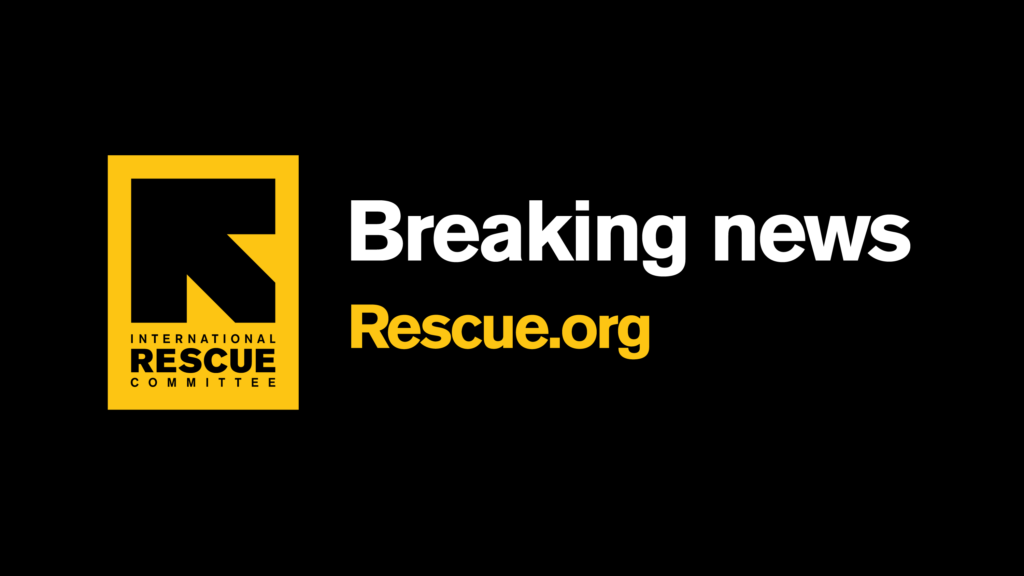As this year's World Health Assembly (WHA) gets underway, the International Rescue Committee (IRC) is calling on the international community to focus on last-mile delivery, given the widening inequality between stable and fragile contexts.
27 May 2024 — At the World Health Assembly, the IRC calls on the international community to prioritize last-mile health solutions to close global delivery gaps, with a special focus on immunization, malnutrition, and sexual, reproductive and maternal health.
Global public health disparities are increasingly stark between stable and crisis-affected situations, exacerbated by COVID-19 and the overlapping challenges of climate change, poverty and conflict. In the areas where IRC works, maternal and child mortality rates are five times higher than the global average. These fragile and conflict-affected areas are home to disproportionately high numbers of children who are acutely malnourished, under-vaccinated and completely unvaccinated children under the age of five.
Dramatic improvements in global health in stable contexts have been achieved primarily through health facilities and government-led health programmes and systems. In fragile contexts, even the most basic facilities and services may not be available or can not be sustained in the face of conflict or crisis, and government programmes often fail to reach people facing humanitarian crises.
The IRC-led REACH Consortium is one of two GAVI-funded multi-sector partnerships to reach unvaccinated and under-reach children. Funded by Gavi, the Vaccine Alliance, REACH was designed to close immunization gaps in Ethiopia, Somalia, South Sudan and Sudan. Supported by a network of global and local partners, the REACH Consortium works to extend services to people beyond the reach of government systems, ensuring no child is left behind, wherever they live.
Dr. Mesfin Tekle Tessema, Head of the IRC Health Unit, said: “Climate change, conflict and poverty are increasing the likelihood and scope of public health risks globally. The need for scalable, evidence-based solutions to close the last-mile gap and strengthen global health has never been clearer. In fragile settings, where public health challenges have grown in recent years, a partnership model that relies on all stakeholders, not just governments, works well. Early progress is promising: we've distributed 1.5 million vaccine doses in the Horn of Africa and negotiated increased access to underserved communities, increasing access from 16% to 77% in the first year. REACH's people-first model must become the rule, not the exception, not just to reach 25 fragile countries that are home to more than 90% of the world's unvaccinated children, but also to address the widening health disparities between stable and fragile contexts.”
Earlier this year, IRC launched its End Malnutrition Campaign with a singular goal: to ensure that no child dies from acute malnutrition. In the areas where IRC works, a simple and affordable treatment, ready-to-use therapeutic foods (RUTF), is available, but less than one in five children have ever received this life-saving solution. IRC advocates for a simplified treatment that is scalable, cost-effective, and proven to recover more than 90% of malnourished children who are treated. Central to scaling up this treatment is the role of Community Health Workers (CHWs) who deliver this life-saving care directly to affected communities.
IRC also supports women and girls living in vulnerable settings around the world with simple, cost-effective and proven solutions to address sexual and maternal health. This includes working with local partners to ensure minimum sexual and maternal health services in emergencies and as a last resort through women's self-care when health services and personnel are not available. Flexible and sustained investments in comprehensive sexual and reproductive health must be scaled up if women and children are to survive and thrive.
IRC health programs reach people in more than 40 countries, providing life-saving services and addressing the root causes of disease. IRC health programs reached 23.8 million people last year. Health accounts for almost half of IRC's global program portfolio, focusing on scaling up six priority areas including immunization, nutrition, contraception, infection prevention and control, and clean water access.



